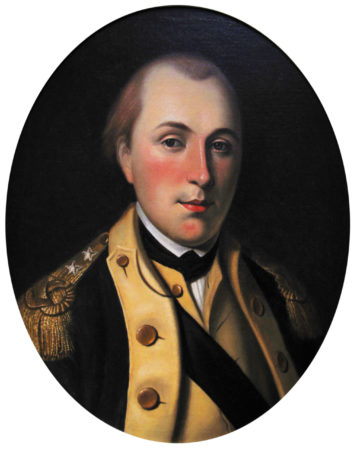Who was Lafayette?
Marie-Joseph Paul Yves Roch Gilbert du Motier, Marquis de La Fayette, more commonly known as the Marquis de Lafayette or just Lafayette was born on September 6, 1757 to a French aristocratic family in Chavaniac, France. Gilbert du Motier assumed the title Marquis after his father’s death. At age nineteen he was already a trained soldier.He traveled, at his own expense, from France to North America to support the impressive ideals of the thirteen colonies.
Lafayette worked closely with founding fathers Benjamin Franklin,Thomas Jefferson, James Madison, and Alexander Hamilton. He became a general in the Continental Army and developed a friendship with George Washington. It was Lafayette who commanded the right flank of the American forces at the Battle of Yorktown when General Cornwallis surrendered and brought the American Revolutionary War to an end. For his efforts, the United States Congress invited Lafayette on a “Farewell Tour of America.” For thirteen months, he visited all twenty-four states. Throngs celebrated his arrival with parades, banquets and triumphal arches.
He visited Georgia in March of 1825, where the local scenery reminded him of his home, the Chateau de LaGrange Blenau, in France. After this, LaGrange, Georgia assumed its name. All over America, cities, towns, streets, and counties named themselves in honor of this champion of liberty and human rights. Lafayette is remembered and respected for his noteworthy character traits of courage, friendship, loyalty, sacrifice, perseverance, and advocacy for the rights of all persons including the abolition of slavery in all situations in the world. He argued for expanded legal rights for women, he defended the rights of French Protestants and Jews during the French Revolution, and supported movements to spread the cause of liberty in South America, Italy, Ireland, Greece, and Poland.

